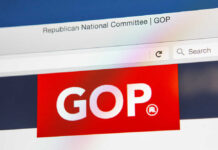
Industry experts say that while the EPA has admitted that its proposed rule banning the chemical used in dry cleaning would have little effect on the environment, it would be “devastating” for small businesses throughout the country, the Washington Free Beacon reported.
According to the EPA, while the chemical PCE (perchloroethylene) presents no “unreasonable risk to the environment,” the agency is proposing a ban due to “health hazards.”
But dry cleaning industry experts argue that the health hazards from PCE are being overestimated by the EPA and the proposed ban will place an unnecessary burden on dry cleaners across the US who use it.
In the EPA’s proposed rule, the agency admits that it is unable to say how many dry cleaning facilities would be closed due to the ban. But according to industry experts, the number could be as many as 6,000 US businesses.
In addition to its use in dry cleaning, PCE is also used in the manufacturing of petroleum.
While the EPA’s primary task is dealing with environmental issues, the agency argues that it has the authority to impose a ban on PCE through the Toxic Substances Control Act.
The National Cleaners Association executive director Nora Nealis told the Free Beacon that such a ban will have an economic impact on dry cleaning businesses, even if the proposed rule gradually phases out the use of PCE. Nealis added that the EPA’s assessment of the health risks associated with PCE is “overly cautious.”
She explained that washing machines that use PCE typically last between 15 to 20 years. If a dry cleaner is asked to replace a machine purchased in the last ten years, the business would lose as much as half of the machine’s lifespan.
Jon Meijer from the Dry Cleaning and Laundry Institute told the Free Beacon that the experts the dry cleaning industry depends on have said that the risk from PCE “is very much overstated.”
In raising concerns over the economic impact of such a ban, Nealis told the Free Beacon, “There are health effects to bankruptcy too.”














